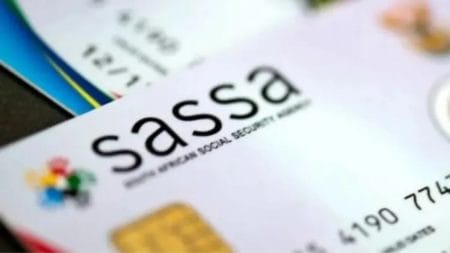If you’ve applied for a SASSA (South African Social Security Agency) grant and found that your status has been declined, you’re not alone. Fortunately, there are steps you can take to appeal a SASSA decision and potentially get your status fixed.
In this article, we’ll walk you through five simple steps to resolve a declined SASSA status. Whether you’re applying for the R370 Social Relief of Distress (SRD) grant or other SASSA benefits, the process to challenge the decision is similar.

Step 1: Understand the Reason for the SASSA Status Decline
The first step when you find out your SASSA grant was declined is to understand why it happened. You can do this by checking the specific reason for the decline on the SASSA website or mobile app. SASSA provides detailed information about each applicant’s status, explaining why the decision was made.
Common Reasons for Decline Include:
- Income Registered: SASSA may have flagged you as having an income higher than the eligibility threshold.
- Duplicate Application: You may have submitted multiple applications, leading to confusion.
- Incorrect Details: Sometimes, personal information discrepancies can result in a decline.
- Unqualified Criteria: If SASSA finds that you don’t meet certain qualification criteria, such as age or nationality, your application may be declined.
By knowing the exact reason, you’ll be in a better position to prepare your appeal.
Step 2: Submit an Appeal
Once you’ve identified the reason for the decline, the next step is to submit an appeal. If you believe that SASSA made an error or your situation has changed, you have 30 days from receiving the decline notice to submit your appeal. This can be done via the SASSA website or mobile app.
How to Appeal:
- Go to the SASSA SRD Appeals section on their official website or open the SASSA app.
- Navigate to the appeal form, fill in your details, and explain why you believe your application was wrongly declined.
- Submit the form within the 30-day period to ensure your appeal is considered.
Step 3: Provide Supporting Documents
Sometimes, SASSA requires additional information or documentation to review your appeal. If this is the case, you need to upload these supporting documents that prove your eligibility. For example, if your decline was due to incorrect income registration, you can provide proof of unemployment or income below the required threshold.
Important Documents You Might Need:
- Bank statements or proof of unemployment.
- Identity documents to confirm your personal details.
- Any other specific documentation requested by SASSA that supports your appeal.
Ensure that your documents are clear and accurate to avoid further delays.
Step 4: Monitor Your Appeal
After submitting your appeal, it’s important to stay informed about the status of your application. Regularly check the progress of your appeal by logging into the SASSA website or app.
How to Track Your Appeal:
- Go to the Status Check section of the SASSA platform.
- Enter your ID number and other requested details.
- The platform will update you on the status of your appeal and inform you if any further action is required.
Patience is key during this stage, as the review process can take time depending on the number of appeals being processed.
Step 5: Contact SASSA for Further Assistance
If your issue remains unresolved or you face challenges while following these steps, it may be time to contact SASSA directly. You can reach out to them through their official contact numbers or by visiting your nearest SASSA office.
Options for Contacting SASSA:
- Visit your local SASSA office to speak with a representative in person.
- Call the SASSA helpline for support with your appeal or to raise any concerns.
- Use social media channels like Facebook, where SASSA also provides updates and responds to queries.
Make sure to have all your details and documents ready when contacting SASSA to help resolve the issue as quickly as possible.
Tips for a Successful Appeal
- Submit your appeal as early as possible within the 30-day window.
- Ensure all your information is correct when re-applying or submitting supporting documents.
- Be patient as the appeal process can take some time, especially during high-demand periods like COVID-19 relief.
- Keep checking your status on the SASSA website or mobile app to stay updated on any changes.
Read More: Lost Your SASSA Application ID? 6 Simple Steps to Recover It
A declined SASSA application can be disheartening, but it’s not the end of the road. By following these five simple steps, you can appeal the decision and potentially get your SASSA status approved. Whether it’s understanding the reason for the decline, submitting an appeal, or monitoring your status, these actions will give you a clearer path to resolving the issue.
Remember: SASSA provides these grants to assist vulnerable South Africans, and the system is in place to ensure that everyone who is eligible receives the support they need. If your application was wrongly declined, don’t hesitate to take action.










